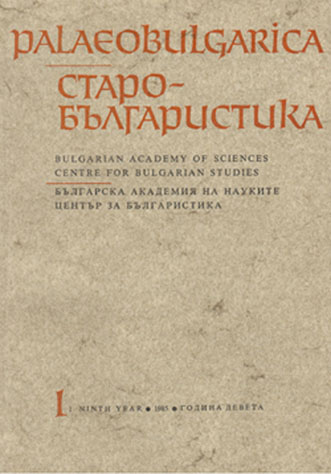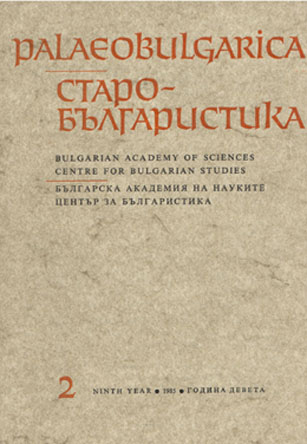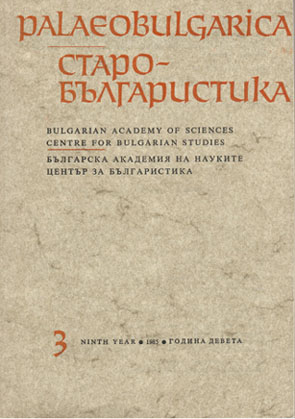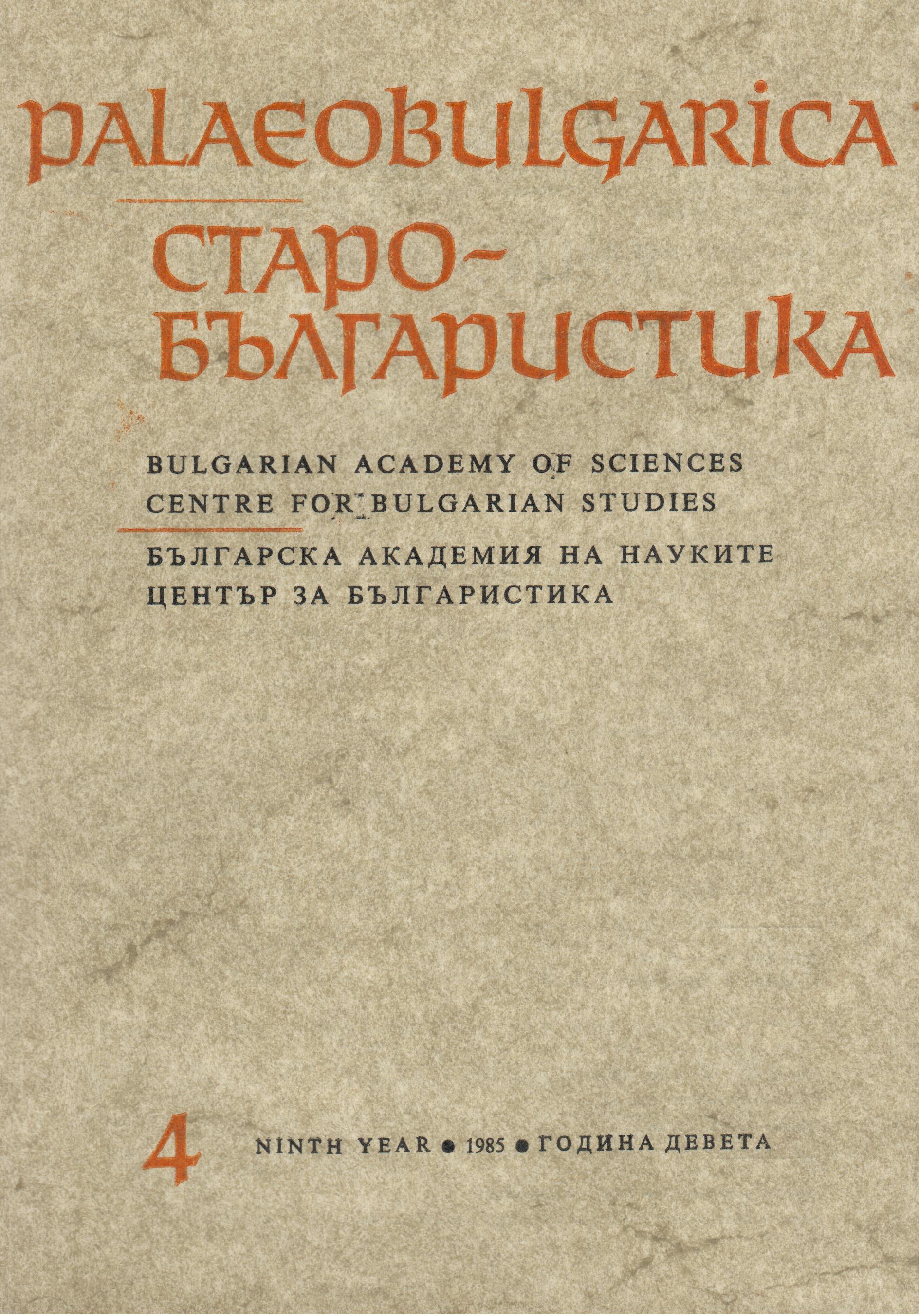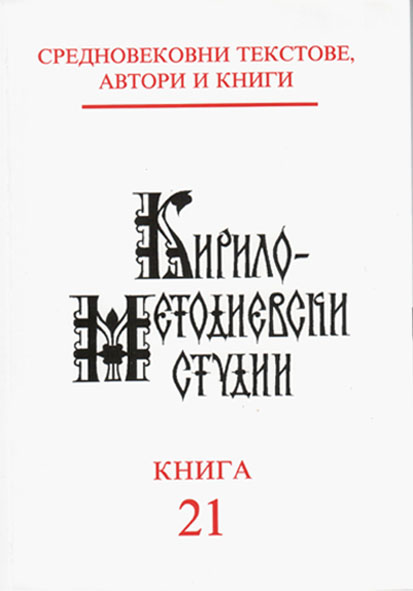
Най-старият български препис на Чудото на архангел Михаил в Хоня
The story about the Chonae miracle appeared early, probably as early as in the 4th с. and is related to the history of one of the oldest temples to Archangel Michael erected some time back in the 4th с. near the Anatolian city of Colossae in the region of Phrygia. The story is a translation of a work attributed to Archippos, paramonarios at the Chonae temple dedicated to Archangel Michael (BHG 1282). The translation is circulated mainly in menaion collections. The here presented oldest Bulgarian copy of the Chonae Miracle (CM) belongs to the copies read in other type of collections. It is part of a Bulgarian breviary preserved at the Library of the Greek Orthodox Patriarchy in Jerusalem under № 12 and dated not later than the second decade of the 14th c., most probably around 1315; it is written on paper; the text is sewn on before the Breviary and occupies ff. 1–13. The orthography is two-jus, one-jer (ъ). On ff. 1r-9v we can see only little jus. From f 11a to the end prevails ''on" and "en" is used only thrice. The vocabulary of CM is typical of the 10th century literary language. The Jerusalem Breviary № 12 CM is the earliest known copy of the third redaction of the work according to the Studios Typikon. It keeps some of the most ancient features of the translation. This text brings us even closer to the original which appeared back in the early 10th с. in Glagolithic alphabet.
More...
